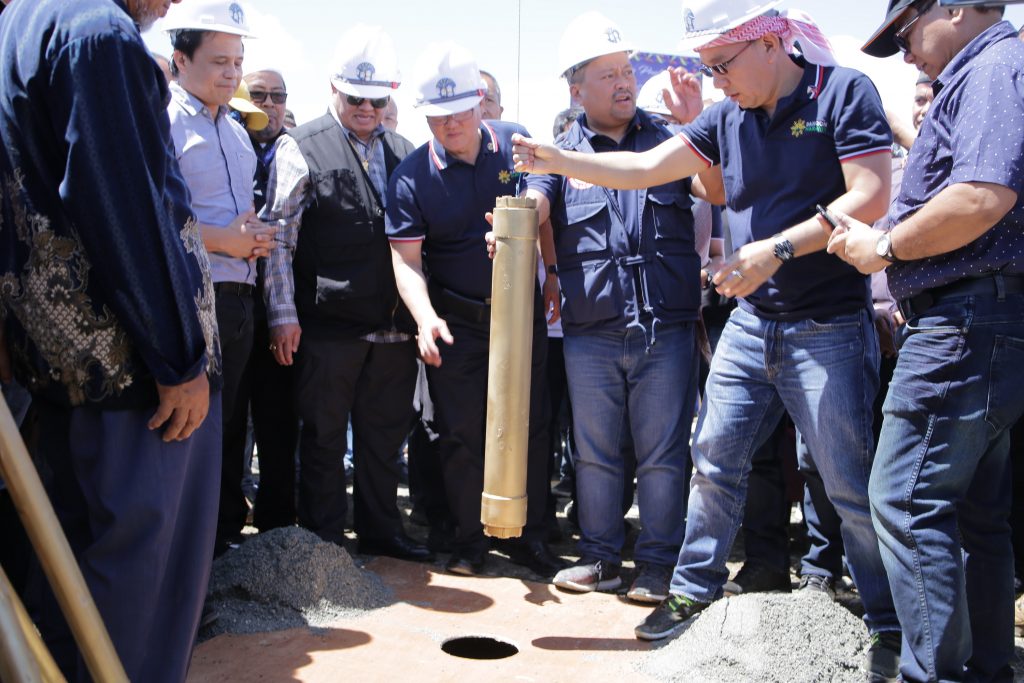Media’s disinterest in the issues of delayed rehabilitation of Marawi
Photo from the Task Force Bangon Marawi official website.
AFTER SEVERAL postponements, the ceremony to kickstart Marawi City’s rehabilitation finally pushed through on October 30 – without President Rodrigo Duterte in attendance.
Authorities had earlier scheduled the groundbreaking for October 17, the first anniversary of the city’s “liberation,” then moved it to October 31 so that the president, who could not make it on the earlier date, could grace the ceremony. A few days before the new schedule, when told that Duterte still could not attend, the organizers decided to hold the event a day earlier without him.
The event was markedly absent from most media coverage, with the exception of a few news accounts. Undas-related stories (All Saints’ Day and All Souls’ Day) and other developments took up much of media time and space for the period. The event could have served as a hook for media to update the public on the delayed rehabilitation of Marawi and to indicate what could be expected moving forward. But media missed the opportunity, betraying yet again the Manila-centric orientation of national news.
CMFR monitored reports from the three leading Manila broadsheets (Manila Bulletin, the Philippine Daily Inquirer and The Philippine Star); free TV newscasts 24 Oras (GMA-7), Aksyon (TV5), News Night (CNN Philippines) and TV Patrol (ABS-CBN 2); as well as selected news websites from October 27 to November 4, 2018.
Focus on other events
Media followed up on the destruction caused by Typhoon Rosita, with updates on the landslide in the Mountain Province which had taken lives. The coverage of Undas relied on the usual preparations by local government units for the crowds in the cemeteries, security measures by the police as well as holiday travel and transport.
None of the four newscasts above aired reports on the groundbreaking rites. But there were a few exceptions.
Among broadsheets, only the Inquirer picked up the event with reports on October 31 that recorded the ceremony and on November 1, the sentiments of some Marawi locals who talked about the about the slow pace of rebuilding their city.
The online news sites Rappler and MindaNews provided more relevant information. Rappler and MindaNews included in their October 30 report the Task Force Bangon Marawi’s (TFBM) plan of action and the anticipated pace of implementation. In a separate report on the same day, Rappler noted TFBM’s new approach to open the rehab plan to local developers.
Davao-based news site MindaNews, which has been consistently following the progress of the rehabilitation program, published a folio of stories on November 3. It reported the TFBM’s flip-flopping on the scheduling of the groundbreaking event. Another noted the plans and implementation expected in the coming months. It also had two reports on TFBM’s consultation conference with local executives and contractors about the housing and infrastructure projects in the MAA, noting possible roadblocks and limitations in the process.
Cheers
CMFR cheers Rappler for going into the nitty-gritty of what caused the delays in Marawi City’s rehabilitation plan.
In its November 3 report, Rappler zeroed in on the government’s “ill-founded insistence” on using a joint venture agreement (JVA) model to authorize a developer for the rehabilitation, highlighting the expressed preference of both Malacanang and the TFBM for a JVA with a private entity subject to a Swiss Challenge. It also noted the issuance of Executive Order No. 49 which authorizes the National Housing Authority to craft its own guidelines.
The same report recalled controversial issues which had held back the work on Marawi. It clarified that a JVA involved funding both from government and the private entity, correcting the mistaken view expressed by the TFBM’s chair, Eduardo del Rosario who said that the JVA mechanism did not involve government funding until the project was finished.
This is one of the rare reports to probe the source of the delayed rebuilding which has been mired in controversial conflicts among the parties involved (See “Marawi A Year After: Media Spotlight People’s Plight and Rehab Woes”). Rappler pointed out that the former government counsel, Rudolf Jurado, was fired by the president one week after he had expressed his opposition tothe use of a JVA. Jurado’s firing, however, was due to his legal opinion on a separate issue for which Duterte accused him of “granting a franchise” for online gambling facilities. Rappler reported Jurado’s denial.
Rappler’s research revealed that the administration’s insistence on shortcuts, the lack of competence of officials in understanding key concepts and political arm-twisting have resulted in denying the displaced Maranaws the restoration of their city, delaying further their return to their homes.

Leave a Reply